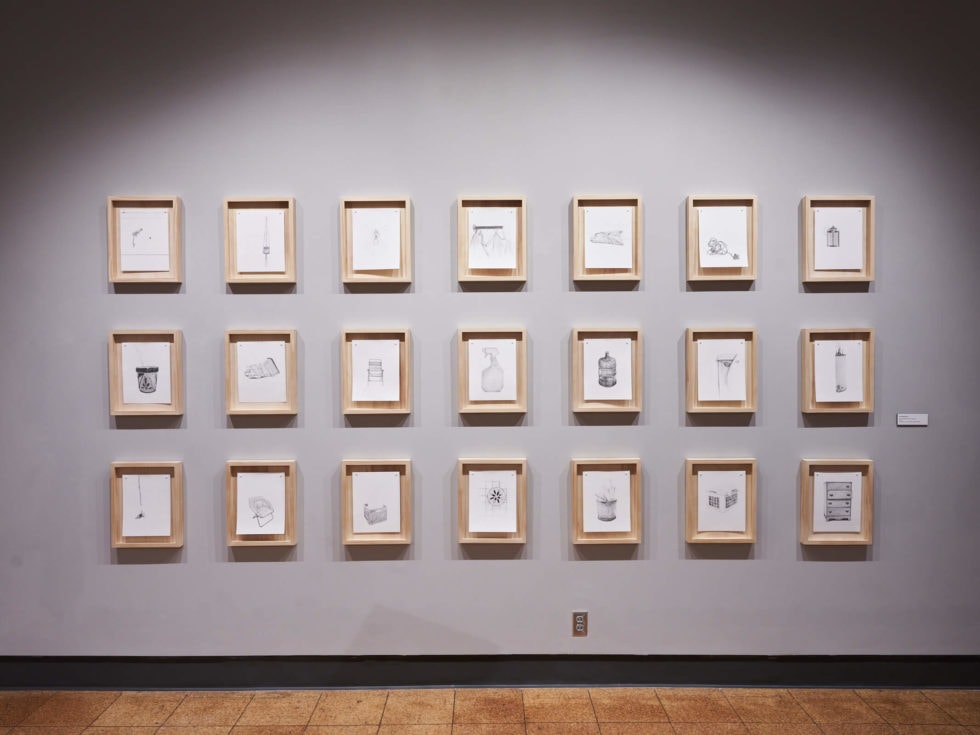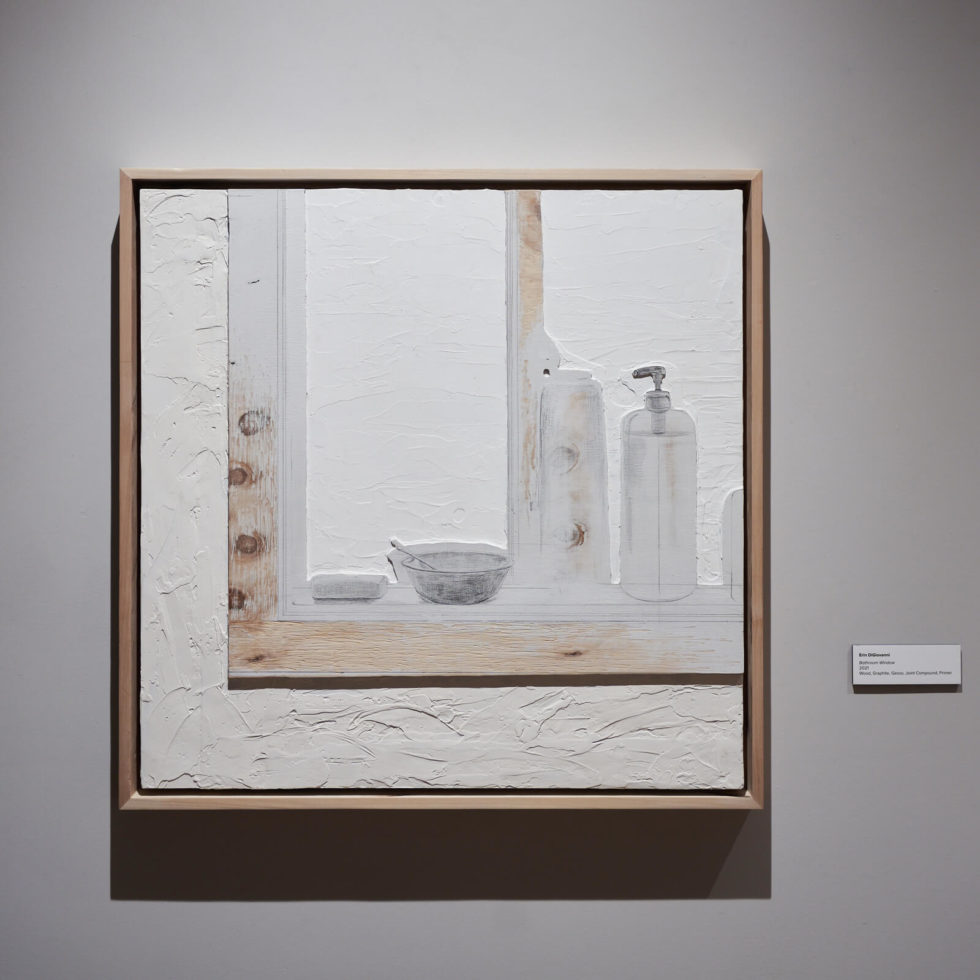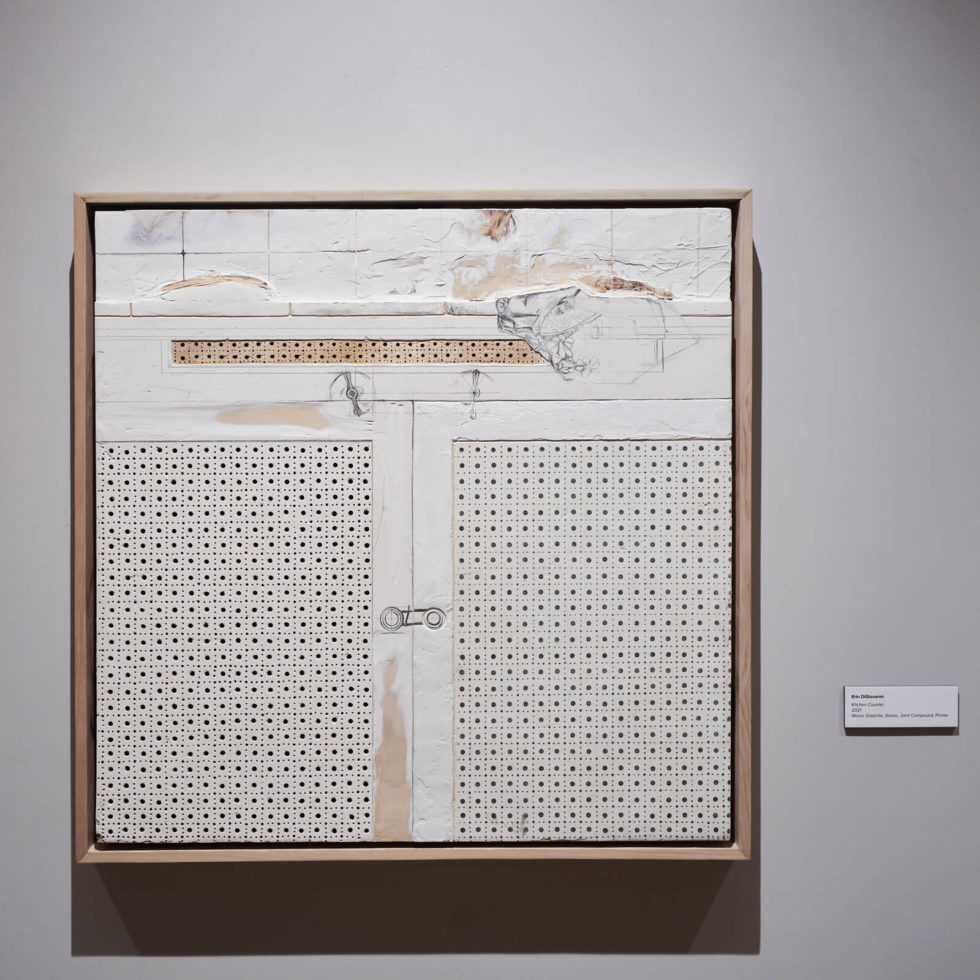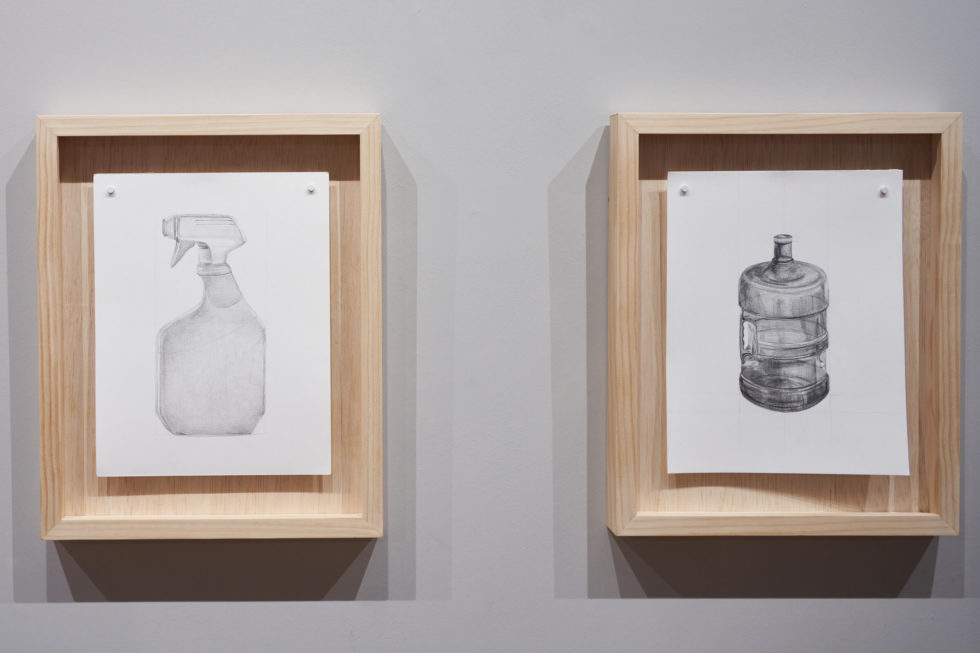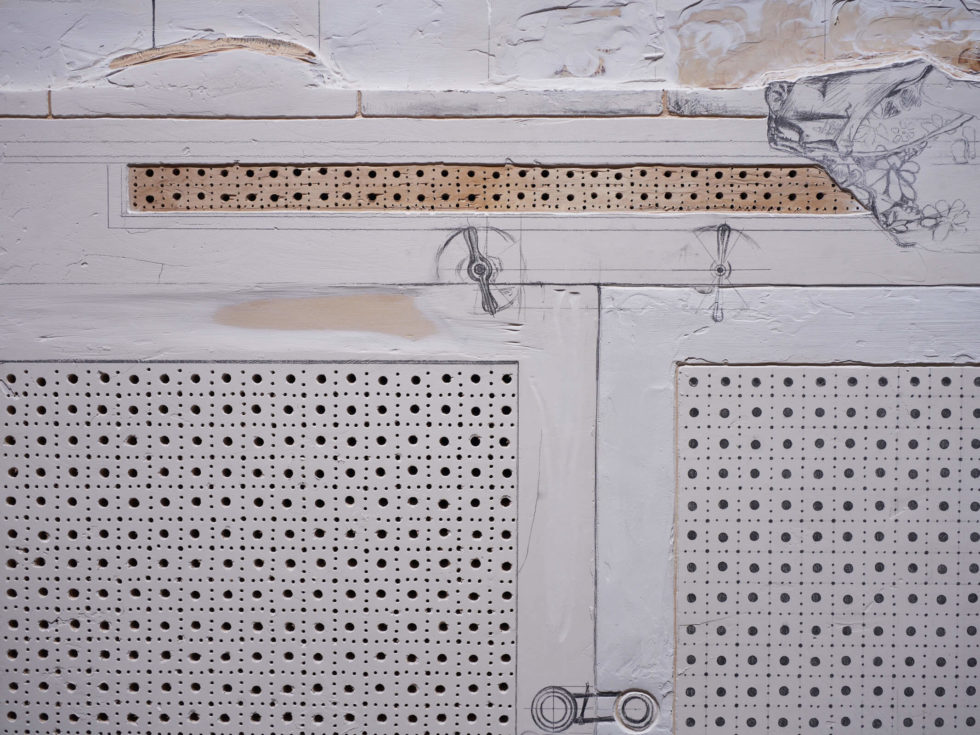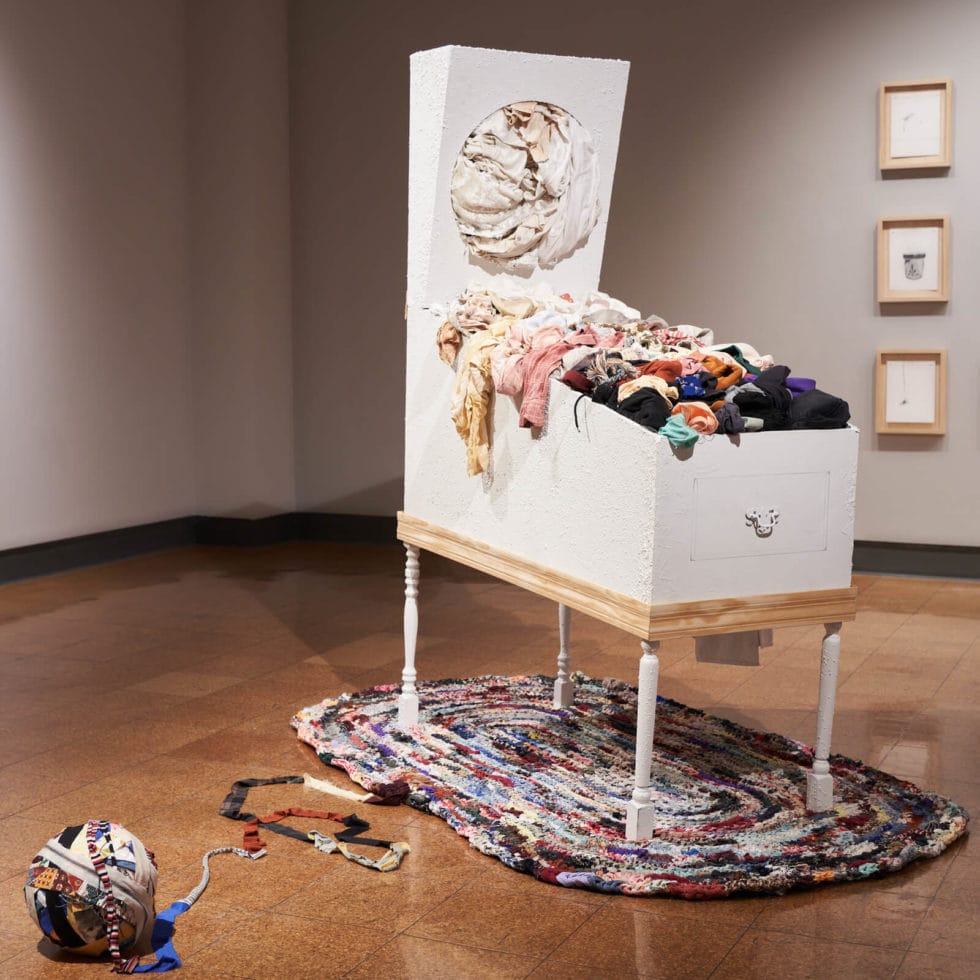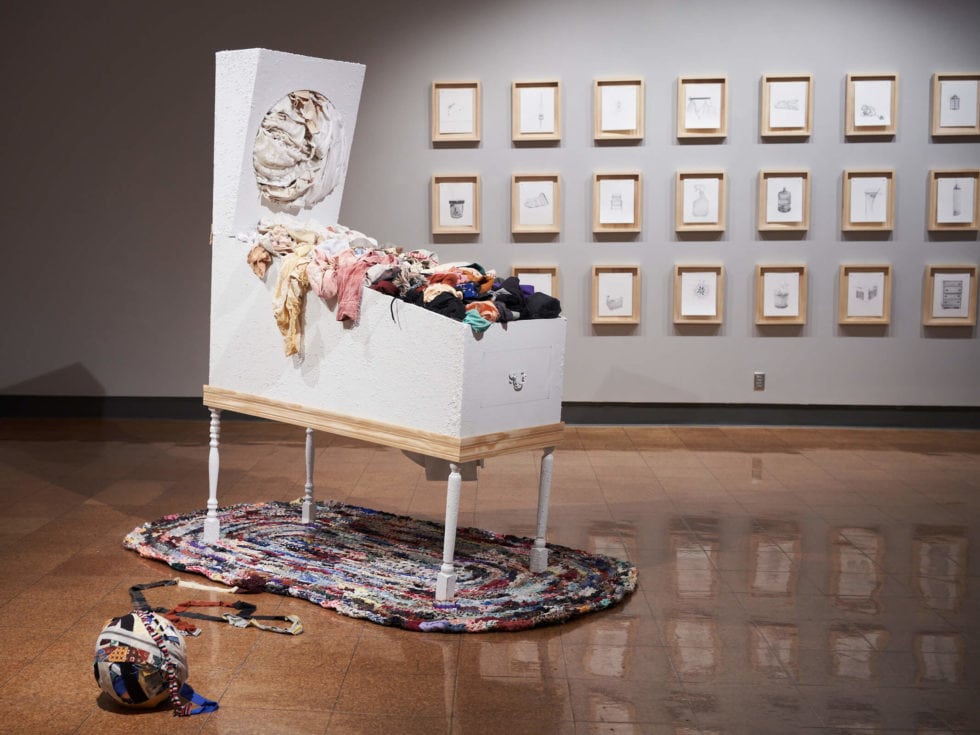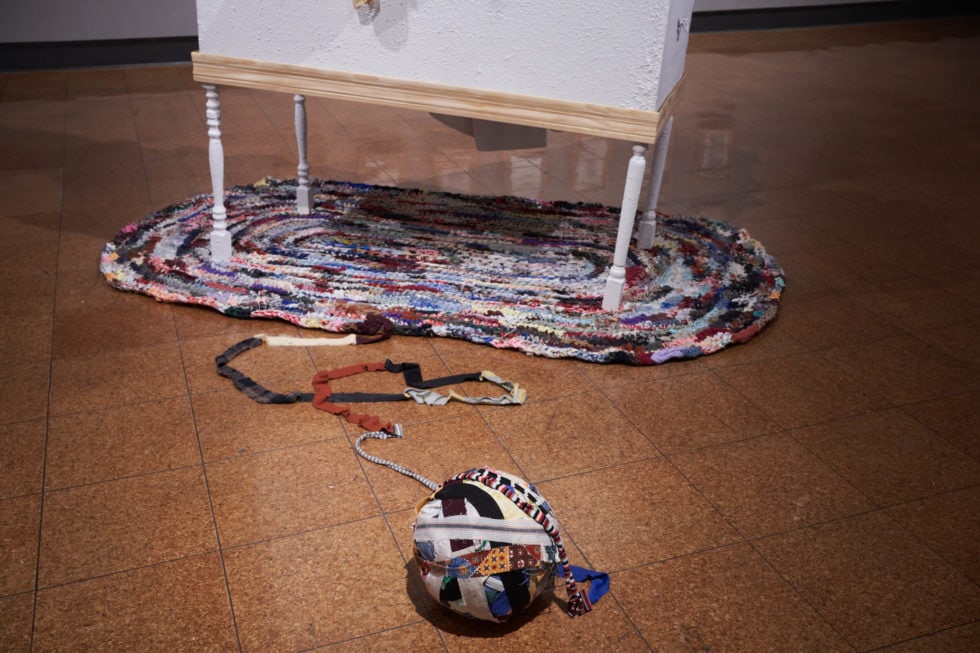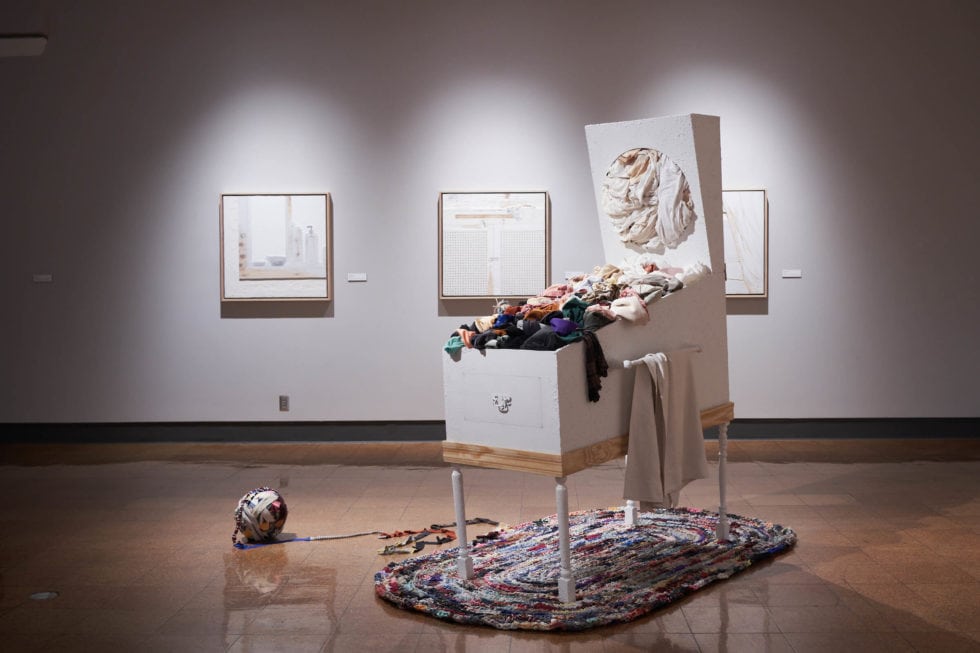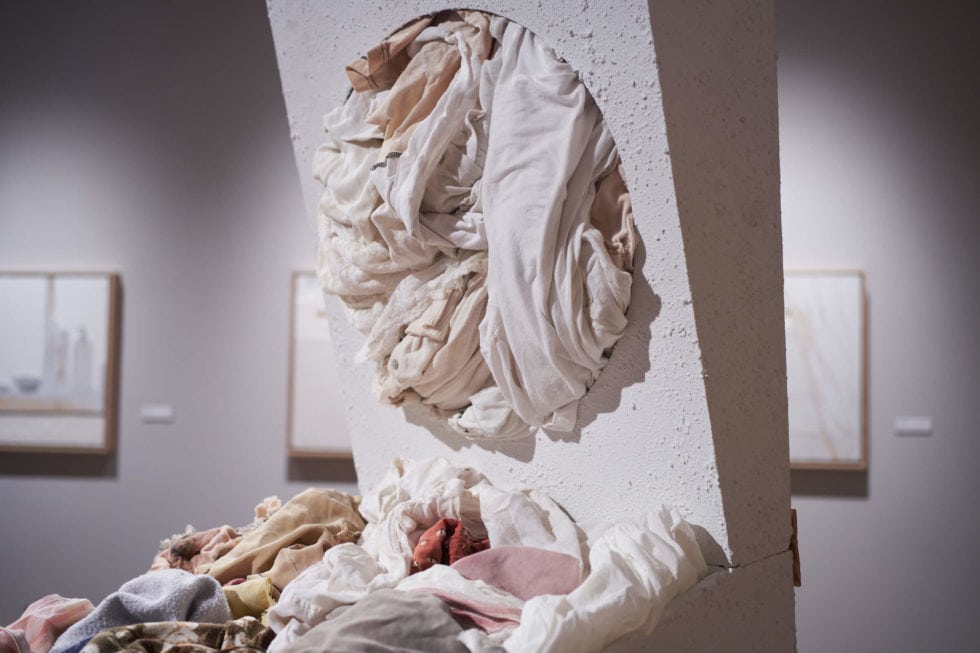Excuse the Mess is an exhibition of works which replicate function, catalogue and display the commonplace, and combine domestic and recreational. The title is a familiar disclaimer offered to mitigate the potential embarrassment and unease when one enters the intimate dwelling of another, making way for the work itself to investigate and challenge the social and self-stigmatization of addiction and mental illness within domestic settings and American culture.
25% of American children grow up in households where substance abuse is present.1 Studies suggest that up to half of a person’s risk of becoming addicted to substances (nicotine, alcohol, and other drugs) depend on their genetic makeup. Along with hereditary disposition, a person’s environment and learned behaviors, values, habits, and communication styles can put one at risk of self-medicating tendencies as a means of coping with physical and emotional pain.
In the sculpture Wash with Care, leisurely activities and mundane yet daunting tasks merge to challenge the familiar and repetitive acts of self-medication. A hybrid pinball-washing machine is stuffed with bleached and unbleached textiles collected from friends, family, strangers, and laundry bins alike. The fabric, torn, cut and crocheted into a rug forms the foundation on which the hybrid objects rests. The visual transition of bleached to unbleached fabrics foreshadow a traumatic shift in the rug’s once vibrant and dynamic pattern. Cyclical processes of everyday soil and grime removal will weaken and dull the machine’s own resting mat if the bleaching action proceeds without user awareness. In an attempt to purify the psyche through the “bleaching” of traumatic memory, sentiments are numbed and coveted recollections also become faded.
A pause in the perpetual development of interior spaces, Remodel Under Way is a drawing- based relief series inspecting the origin and development of compulsive behaviors as coping tools for pain. Actions of carving, piercing, coating, sanding, covering, and drawing are utilized to mimic pre-existing habitual spaces and objects within the artist’s home.
Accomplishments (No Returns) is a collection of 21 observation drawings that depict used and replaceable items. Ubiquitous objects within the artist’s dwelling space become reflections of personal value and worth during moments of isolation. The mundane is individually cared for through delicate rendering, then presented in a rigid grid for categorization of form and function.
Acknowledging small accomplishments and achievements is a part of addiction recovery. For some, this can just be getting out of bed, taking a shower, or doing the laundry.
1 https://www.drugabuse.gov/publications/drugfacts/genetics-epigenetics-addiction



